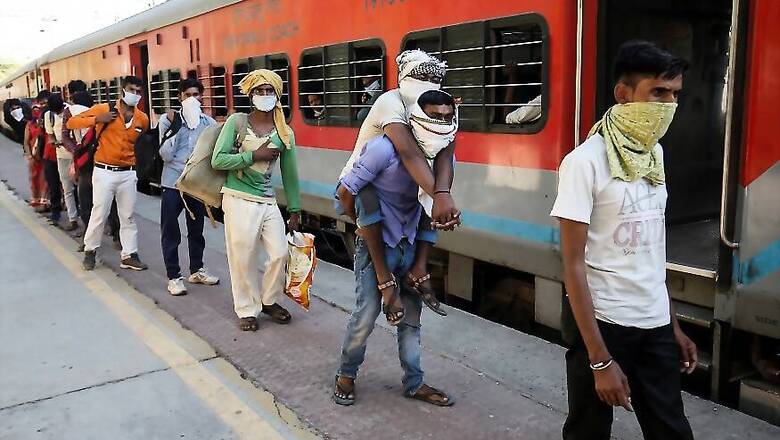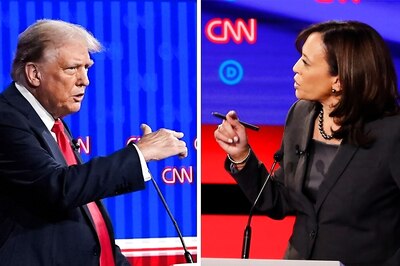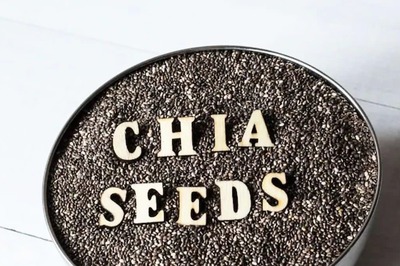
views
New Delhi: Over 1,000 Indians were rescued from coronavirus-hit countries by Air India and they did not have to shell out any money for the service.
India was among the first countries to rescue its citizens from COVID-19 hotspots around the world, operating special flights to bring back those stranded in China, Italy, Japan and Iran.
However, unlike migrant workers who at times have to pay extra fare for their journeys back home, stranded Indians were flown back in special evacuation flights operated by Air India and paid for by the government.
Between January 31 and March 22, Air India operated five special flights to evacuate over 1,000 Indian passengers from China, Japan and Italy. It also flew Indians, who had returned from Iran, to the Indo-Tibetan Border Police (ITBP) quarantine facilities in Jodhpur and Jaisalmer from Delhi.
For all these special flights as per protocol, the passengers weren’t charged the commercial fare. Air India billed it to the Ministry of External Affairs.
Sources in the Ministry of Civil Aviation said for every such evacuation exercise, the national carrier steps in. "Air India operated these flights and as a public sector undertaking (PSU), it raised a bill. The cost is paid by the government of India," said a source.
The first rescue operation was from the COVID-19 epicentre of Wuhan in China. Air India used its Boeing 747 jumbo aircraft and rescued over 640 Indians from Wuhan in two consecutive flights on January 31 and February 1.
For this alone, the government had to pay Rs 6 crore in expenses. In response to a question in the Lok Sabha, Minister of State for External Affairs V Muraleedharan had said, "Air India has raised a bill of Rs 5,98,90,352 for operating two special flights to China."
Later in February, Air India rescued Indians who were stuck on board the quarantined Japanese cruise ship Diamond Princess, off the coast of Yokohama.
At least 119 Indians and five foreign nationals were rescued by Air India on February 26. Around the same time, an aircraft of the Indian Air Force (IAF) was sent to Japan to bring back 76 stranded Indians.
In March, Air India operated two flights from Italy -- from Milan and from Rome -- bringing back 218 and 263 passengers, respectively. For each of these flights, Air India spent crores of rupees, but the burden of cost did not lie with the passengers.
"The government of India bears the cost of all such evacuations of Indian citizens. And that has been the practice from the past and continues till date,” said Kapil Kaul, an aviation expert.
However, the same cannot be said about the government's handling of the crisis of thousands of migrant labourers who have been desperately trying to return home since the lockdown was imposed over a month ago.
With no work and income to make ends meet, the workers, mostly from villages, turned restless and wanted to go back to the comfort of their own homes. While many have walked kilometres to reach home, some have even lost their lives while trying to do the same.
As the government struggled to chalk out ways to make arrangements for those stranded across India, several incidents of migrant workers hiding in trains, trucks or riding bicycles to return home have been reported over the past few days.
A few incidents of flash protests were also witnessed in several parts of the country as poor workers demanded that they be allowed to travel back to their homes.
As the government finally announced guidelines for the transport of stranded labourers, there have been several reports about migrants workers being charged for train and bus fares, while some food is being arranged by the local administrations.
While the Kerala government the poor labourers to pay the base fare of Rs 875 for being transported to Jharkhand, special trains that left Maharashtra for different state also charged migrant workers the basic fare.
Additional Chief Scretary, (Home, Kerala) Vishwas Mehta said all arrangements are being made by the Centre, but no tickets are being provided for free. "The tickets are being given to us by the Railways. They have to pay the basic fare for it. Food and water will be arranged by us," he said.
On Saturday, confusion reigned in Bengaluru when hundreds of migrant workers gathered at a bus depot after the government gave its nod for inter-district movement.
Initially, it was speculated that the workers would be transported home in buses and the state government would bear the cost. Soon after this, some of them rushed to the depot only to be told they have to shell out a large sum as bus fare.
In the beginning, those who wanted to take the bus were charged a two-way fare, which led to some workers paying more than Rs 1,000 per person to travel to the northern districts of the state.
Chief Minister BS Yediyurappa later ordered that only one-way fare should be collected from them. With no work since days, some labourers struggled to pay even this amount.
Meanwhile, the Railways that has announced the operation of "Shramik Special" trains for migrant workers and other stranded citizens said it will charge the state governments for the services.
The fare would include the cost of a sleeper class ticket, superfast charge of Rs 30, and Rs 20 for meals and water per passenger. Many people have already expressed their disappointment over the matter, including Jharkhand Chief Minister Hemant Soren, who said the central government should reconsider this decision as it is an injustice towards the labourers returning home.
यह वाक़ई दुःखद है। केंद्र सरकार को इस फ़ैसले पर पुनःविचार करना चाहिए। आपदा की इस घड़ी में अपने घर वापस लौट रहे श्रमिक साथियों के साथ यह अन्याय है। https://t.co/v7Q1kToSYV— Hemant Soren (घर में रहें - सुरक्षित रहें) (@HemantSorenJMM) May 2, 2020
On Sunday, Samajwadi Party chief Akhilesh Yadav hit out at the central and state governments for charging money to bring back poor migrant workers in special trains.
अब तो भाजपा के आहत समर्थक भी ये सोच रहे हैं कि अगर समाज के सबसे ग़रीब तबके से भी घर भेजने के लिए सरकार को पैसे लेने थे तो PM Cares Fund में जो खरबों रुपया तमाम दबाव व भावनात्मक अपील करके डलवाया गया है उसका क्या होगा? अब तो आरोग्य सेतु एप से भी इस फंड में 100 रु वसूलने की ख़बर है— Akhilesh Yadav (@yadavakhilesh) May 3, 2020




















Comments
0 comment